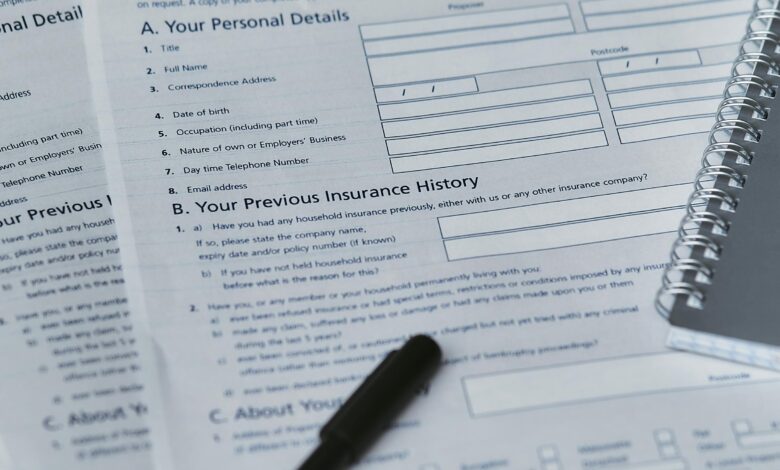Homeowners Insurance vs. Renters Insurance: What’s the Difference?

When it comes to protecting your living space and belongings, understanding the differences between homeowners insurance and renters insurance is essential. While both types of insurance provide financial protection in case of unexpected events, they cater to different needs and circumstances. Whether you own a home or rent an apartment, knowing which policy suits your situation can save you from unnecessary stress and expenses. In this article, we’ll break down the key distinctions between homeowners insurance and renters insurance, explore what each type covers, and help you determine which one is right for you.
What Is Homeowners Insurance?
Homeowners insurance is designed for individuals who own their homes. It provides coverage for both the physical structure of the home and the personal property inside it. Additionally, it offers liability protection in case someone is injured on your property. This type of insurance is typically required by mortgage lenders as a condition of securing a loan.
Key Components of Homeowners Insurance
- Dwelling Coverage :
- Protects the physical structure of your home, including walls, roof, floors, and built-in appliances.
- Covers damage caused by perils like fire, windstorms, hail, lightning, and vandalism (depending on the policy).
- Personal Property Coverage :
- Reimburses you for the loss or damage of your belongings, such as furniture, electronics, clothing, and jewelry.
- Limits may apply to high-value items unless additional riders are purchased.
- Liability Protection :
- Shields you financially if someone is injured on your property or if you accidentally cause harm to others.
- Covers legal fees, medical expenses, and damages awarded in lawsuits.
- Additional Living Expenses (ALE) :
- Pays for temporary housing and other living costs if your home becomes uninhabitable due to a covered event.
- Other Structures Coverage :
- Protects detached structures on your property, such as garages, sheds, or fences.
What Is Renters Insurance?
Renters insurance, also known as tenant insurance, is tailored for individuals who rent their living space, whether it’s an apartment, condo, or house. Unlike homeowners insurance, renters insurance does not cover the building itself—since that responsibility falls on the landlord—but instead focuses on protecting your personal belongings and providing liability coverage.
Key Components of Renters Insurance
- Personal Property Coverage :
- Replaces or repairs your personal belongings if they are stolen, damaged, or destroyed by covered perils (e.g., fire, theft, water damage).
- Includes items like furniture, electronics, clothing, and kitchenware.
- Liability Protection :
- Offers financial protection if you’re held responsible for injuring someone or damaging their property.
- Covers legal defense costs and settlements up to the policy limit.
- Additional Living Expenses (ALE) :
- Helps pay for temporary housing if your rental unit becomes uninhabitable due to a covered event.
- Medical Payments Coverage :
- Provides funds to cover minor medical bills for guests injured in your home, regardless of fault.
Key Differences Between Homeowners and Renters Insurance
While both policies share similarities, there are fundamental differences that set them apart:
| Aspect | Homeowners Insurance | Renters Insurance |
|---|---|---|
| Who It’s For | Homeowners | Renters |
| Structure Coverage | Covers the home and attached structures | Does not cover the building |
| Personal Property | Covers belongings inside the home | Covers tenant’s personal belongings |
| Liability Protection | Included | Included |
| Cost | More expensive | Typically more affordable |
| Responsibility for Building | Owner is responsible for structural repairs | Landlord is responsible for structural repairs |
Cost Comparison
One of the most noticeable differences between homeowners and renters insurance is the cost. On average:
- Homeowners Insurance : Costs range from $1,000 to $3,000 annually, depending on factors like location, home value, and coverage limits.
- Renters Insurance : Much more affordable, with premiums averaging $150 to $300 per year.
The disparity in cost reflects the scope of coverage. Homeowners insurance must account for the replacement cost of the entire structure, while renters insurance only covers personal belongings and liability.
What’s Not Covered?
It’s important to note that neither homeowners nor renters insurance covers everything. Common exclusions include:
- Natural Disasters : Floods, earthquakes, and sinkholes are typically excluded unless additional coverage is purchased.
- Wear and Tear : Damage resulting from neglect or lack of maintenance is not covered.
- High-Value Items : Expensive jewelry, art, or collectibles may require separate endorsements or riders.
For renters, damage to the building itself (such as a leaking roof) is the landlord’s responsibility, not yours. However, any resulting damage to your belongings might be covered under your renters insurance policy.
Which One Do You Need?
Choosing between homeowners and renters insurance depends on your living arrangement:
- If You Own a Home : Homeowners insurance is a necessity. It protects your largest investment—the home itself—and ensures you’re prepared for unexpected disasters.
- If You Rent : Renters insurance is highly recommended. Even though your landlord insures the building, their policy won’t cover your personal belongings or liability. Renters insurance fills this gap at an affordable price.
Why Renters Insurance Is Worth It
Many renters underestimate the importance of renters insurance, assuming their landlord’s policy will protect them. However, here’s why renters insurance is a smart investment:
- Affordability : With low annual premiums, renters insurance offers significant peace of mind without breaking the bank.
- Comprehensive Coverage : It protects not only your belongings but also shields you from liability risks.
- Unexpected Events Happen : Accidents, theft, and natural disasters can strike anyone. Having renters insurance ensures you’re financially protected.




